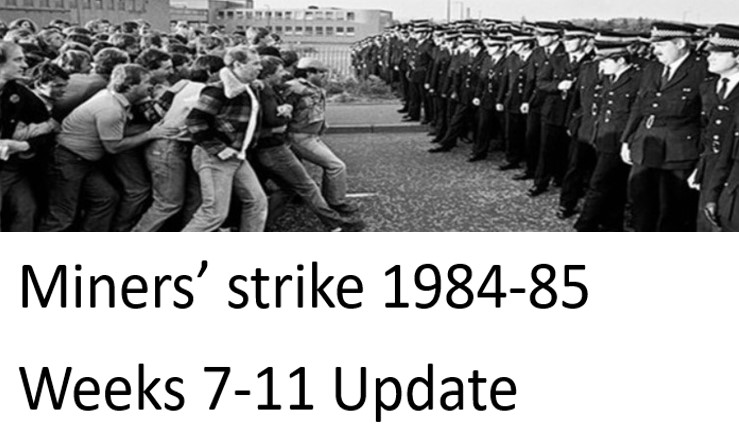By Ali Cevahir in Istanbul
Capitalism, as the saying goes, offers infinite choices of goods and services. For instance, you can have your coffee without caffeine, if you like. Maybe it’s not that common in Europe, but here in Turkey, supermarkets sell beer without alcohol, which is surely in line with the AKP’s policy in general.
Today, before and after the elections, the constitution of Republic of Turkey has been constantly violated by Islamic conservatives (AKP) and its ally nationalists (MHP). Turkey, so to speak, is a democratic and secular republic without constitution. Its constitution has been suspended several times during the military coups (1971, 1980) and by AKP governments since 2002.
As Erdoğan was banned, he couldn’t stand for in November 2002 elections. However, with the help of the “social democratic” party CHP, the party of the founding fathers of Turkey, the “legal” bans for Erdoğan were lifted. But more importantly, following that, the election in Siirt, a city in the far east of Turkey, was annulled and Erdoğan was allowed to run for the election, which was an act against the very core idea of electoral law.
Every element of state used to support Erdoğan
A similar scenario was put into action during the last elections. Although it was explicitly stated in the constitution that one can only be elected twice as president, this was Erdoğan’s third attempt and opposition parties, by and large, did not actively raised their objections against his candidacy. Lastly, during the presidential campaign, Erdoğan’s party utilized every single element of the state apparatus for its advantage. They worked in close collaboration with the military forces in overwhelmingly Kurdish regions. Even though the cameras witnessed everything, men (because women couldn’t even go out to vote) were allowed to use block votes in Urfa city.
The list can be broadened, but this article is not a human rights violation report, and I believe that political analysis is much more crucial than ever. AKP, to say the least, is not a political party in the literal sense of the word. First, its political and economic roots are closely tied with the fate of pragmatic Ikhwan Movement (The Muslim Brotherhood), which, within the last ten years, has been defeated in almost every country in the Middle East and North Africa. The AKP and Erdoğan seemed to be its last bastion.
The political ties between the AKP and the Ikhwan movement paved the way for numerous investments in the region, including Egypt, Tunisia, Lebanon, Sudan and, last but not the least, as an unfinished project Syria. As part of the process, an large number of people easily and immediately became Turkish citizens by buying houses. This is not only a statistical fact which is commonly discussed as the main factor of Erdoğan’s victory.
Erdoğan plays the card of political Islam
Although Erdoğan already shifted his policy towards the regime of [Egyptian president] Sisi and came to terms with the wrong policies after the military coup, he still plays the card of political Islam within Turkey itself. Before the elections Erdoğan also tried to restore relations with the United Arab Emirates (to silence a Turkish mafia leader based there, who has been confessing to illegal ties with AKP), with Saudi Arabia (for financial support), and even Syria (to alleviate the refugee problem).
Suffice to say, none of these states really trust the AKP but they can get anything (public assets, military support, and the guarantee of cheap labor, which brings about investments with high profits) in return for helping Erdoğan win the elections. As this article shows, Erdoğan’s victory is being hailed in Qatar as a victory against secularism.
This reactionary regional support of the Gulf States seems to have the consent of big capital, and state bureaucracy, and is essentially the raison d’etre of Turkey. From the very beginning of the election campaign, people had been obliged to vote for either AKP and Erdoğan or ex-AKP members (most of whom excluded by the party).
Erdoğan’s rivals did not deal with the core problems such as poverty, corruption, freedom, and inequality. This was a real relief for Erdoğan who knew that he could easily construct his political dominance in nationalist, conservative and religious terms.
The opposition parties lost by agreeing to play the game on the same terms as Erdoğan. The opposition alliance (composed of the CHP and right-wing parties) were so naïve that they believed they could win the hearts of right-wing voters by exposing the corruption within the state.
This alliance was directly against the spirit of the Gezi uprising, a wave of demonstrations and civil unrest that began in Turkey in May, 2013. Since 2013, people feel that they have been constantly manipulated by the “opposition parties”.
Multiple fraudulent voting
The opposition leaders beg the question of whether or not these elections were done fairly. There is strong evidence that votes were systemically stolen, manipulated and that the administration process told the opposition parties blatant lies about the security precautions they’d taken. This video, for example, appears to show multiple, fraudulent votes being cast.
On the other hand, despite its huge mass support, the Kurdish movement never officially agreed to take part in the opposition campaign, waiting instead for the a new parliament and peace negotiations over Kurdish rights. However, this neglect of the campaign only added to the denial of basic human rights and let the whole campaign turn into a nationalist right-wing platform for Erdoğan.
The parliamentary election was always an add-on, a decoration. The results have produced – except for the Workers’ Party of Turkey -TiP (with 4 MPs) and Green-Left Party (61 MPs) – an array of right-wing parties, ranging from Turkish nationalists to the conservative Kurdish Islamic party, whose members are ex-Hezbollah, seen by many as terrorists.
Elected as MP, while still in prison
The Gezi uprising of 2013 was an enormous trauma for the state apparatus, and they were so alarmed that they were determined they would never let it happen again. Yet Can Atalay, who is an important figure of Gezi, is now an elected MP for the TİP, despite still being in prison.
Can Atalay was the lawyer representing workers in many important industrial cases, such as Soma miners, after 301 of them were killed in a mining disaster in 2014. He represented workers in the area of Hendek, where 7 workers were killed due corporate failures. He was also a defence lawyer after the Gezi uprising.
Despite the constitution dictating that he should be released, he is still not released, showing us that we are not just faced with the personal revenge of Erdoğan, but a systematic policy of a state run for big capital. The European Union and the US are still ignoring the ‘elephant in the room’, which is the Turkish state. As long as Erdoğan’s regime serves their interests they will stay silent or raise polite objections in front of the cameras.
Meanwhile, Turkey, which is getting ready to celebrate the hundredth anniversary of its foundation as a Republic, in actual fact only pays lip service to the idea of Republic.



